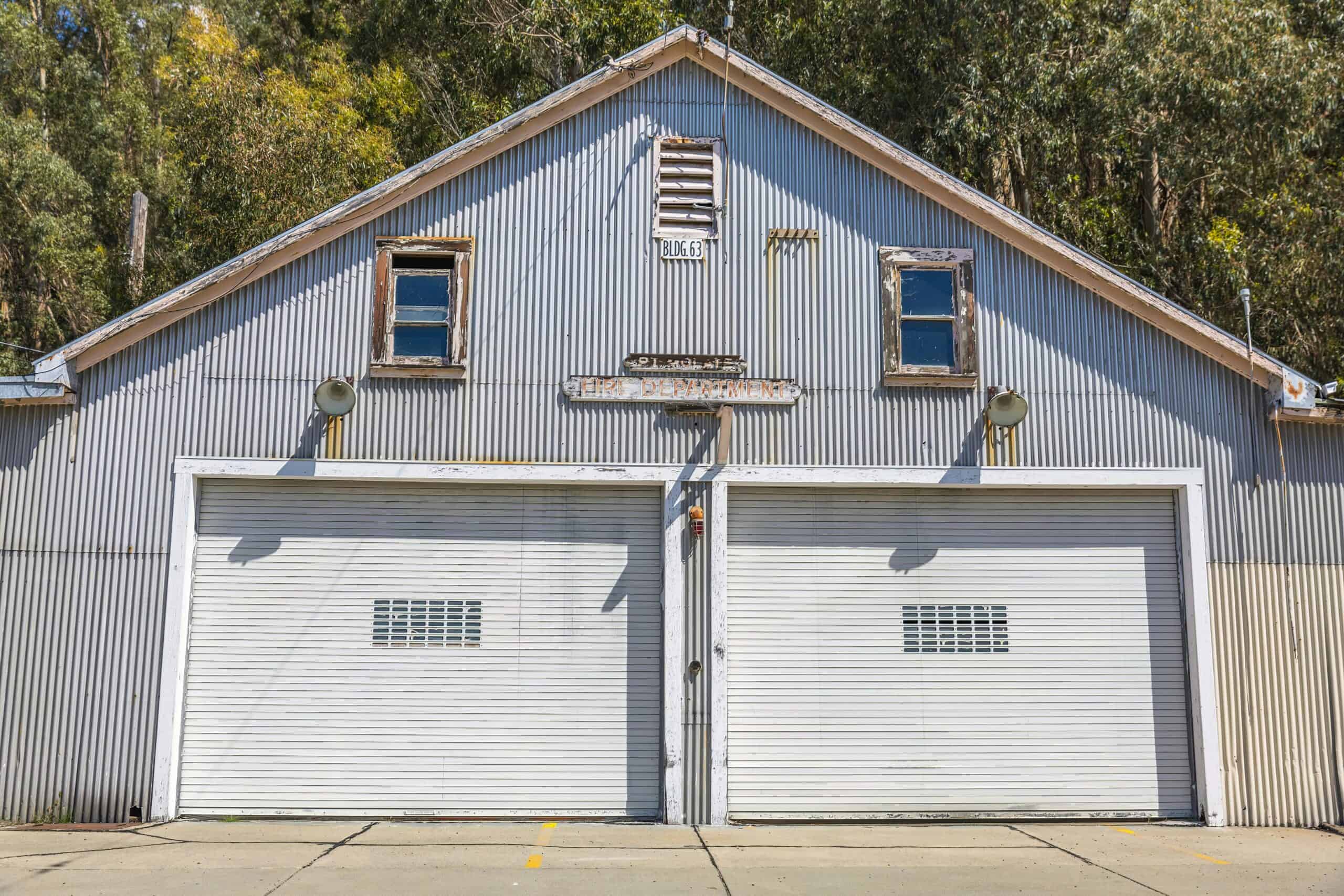Like the whole part of the garage door, the openers require constant repairs as they can break down at any one time if not maintained often. In the event that your garage door is not functioning properly it is possible to diagnose the problem. If it is not solvable, you should seek out the help of a garage door repair specialist in order to determine the issue.
Sometimes the issue is just a problem, and sometimes it is a question of something different. Here are some of the garage door opener issues that may no longer function.
1. The Motor Keeps Running After Garage Door Opens
If you open the garage doors and it turns up, but the motor is still running, then the up motor limit switch needs to be pulled away from the motor unit. This is usually the case when you have just invested on the best garage door opener.
The motor can keep running because gears inside the unit are stripped and therefore even though the motor is running the door does not move. However, if you have no idea on how you can correct the up-limit switch then you can consult a garage door technician.
2. Garage Door Keeps Reversing
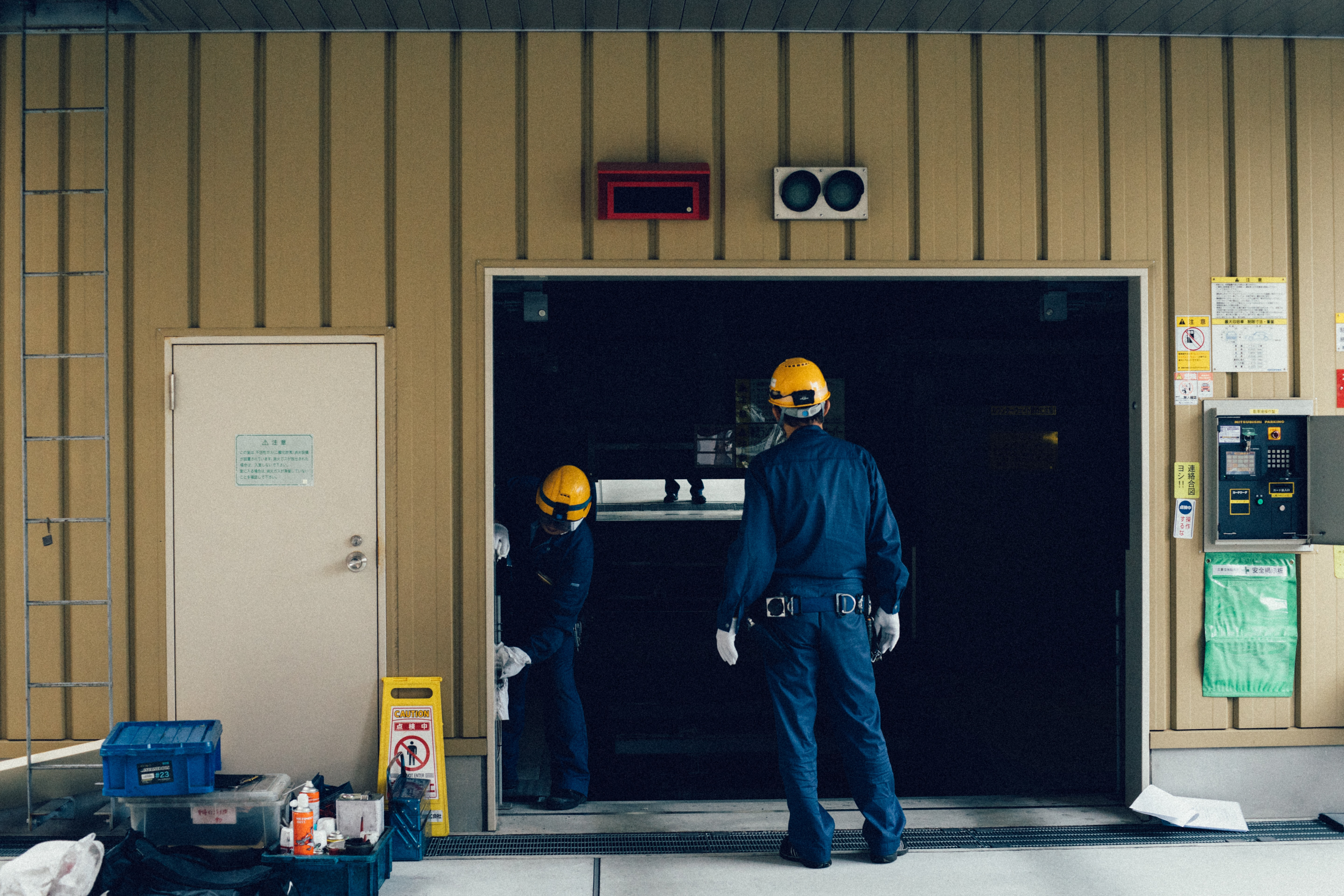
According to J&S Garage Door Service, if you attempt to close the garage door, but it starts to open each time it touches the ground, it is a problem with the close-limit switch. In order to get close-limit screw correctly, you should set the screw on the door opener motor in the nearest position possible and test the door until it sits directly on the floor.
The other reason it could reverse is because, the photosensors fails to work appropriate and the door opens again being convinced there’s an obstacle. It can be cured by cleaning the photosensors, and aligning them properly in order to overcome the problem. If it is not a debris or alignment problem, you must have them replaced.
3. Garage Door Remote Not Functioning
Sometimes the garage door remote may not function, and you need to replace the battery. At other times, you may need to alter the settings on the garage door limit using the remote, hence reprogramming. If that is not the case, the problem could be the receiver part of the remote not getting the transmission. This is a problem that can be solved if you hire a technician.
4. Garage Door Not Properly Closing
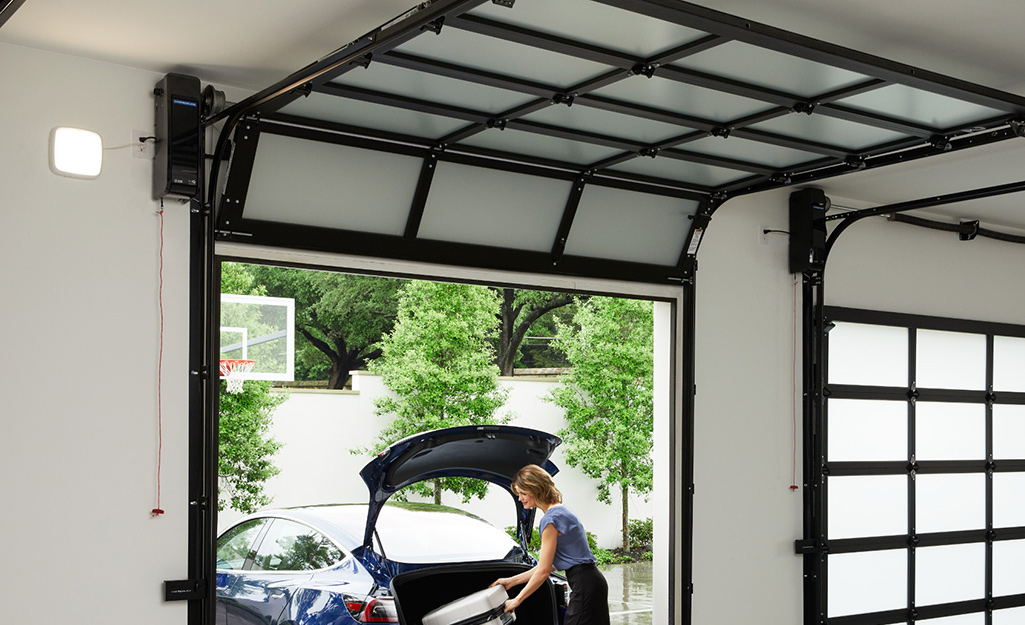
Image Source: homedepot.com
The door might not shut because the rollers are worn out and the door will not glide along the tracks as it should. You can either lubricate rusty rollers or grind or replace the damaged rollers from the machines.
But the issue may also be in springs, pulleys, or cords that have been damaged or become weak. Should any one part of them becomes weak or deformed, the system will be unable to hold the door’s weight. And in that case you can check to see whether those part actually needs to be replaced.
5. Garage Door Is Loud And Noisy
If your garage door is noisy, making sounds such as creaking, grinding, screeching or clanking noises, it is high time you realized that your garage door is defective and is about to break down. This may be caused by the following; rusty parts, loose gears, debris trapped in the tracks, and or broken mechanical gears. You can inspect the door’s moving parts to see where the noises are coming from. Another way you can solve this problem is to fix the garage door problem by installing the best quiet garage door openers.
6. Wall Switch Not Working
Typically, the issue that people face with garage door openers is an inoperative wall switch. This could be caused by a number of problems for instance the connection wire is loose or even a faulty switch. To resolve this, check the power supply to the wall switch.
Check that the outlet you are going to use is working properly and the breaker isn’t popped. Second, check wires of connection points where they are firmly connected or not. If the wiring connections appear in good condition; in that case, the problem may lie in the switch. In this case the only solution, which is effective is replacement of the wall switch with a new one.
7. Garage Door Opener Light Not Turning On
This is a common problem which results from a bad light bulb or a problem in the light socket area. To this end, the first thing to check is the light bulb.
Ensure it is not be burnt out, loose or damaged and get a new one if the situation requires so. However if the bulb of the light bulb seem to be in perfect condition, then there should be a problem with the light socket.
Inspect the current light socket and wiring connections to ensure they are not loose or damaged. In the case, you notice some damage, it’s advisable to replace the socket or else seek help from a garage door technician to assist you do the repair.
Causes of Common Garage Door Problems
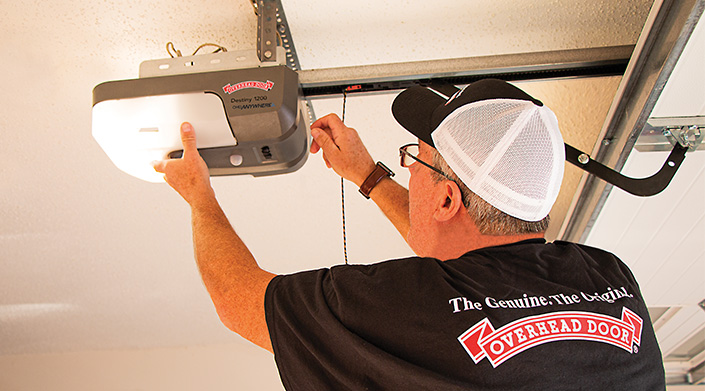
Image Source: overheaddoor.com
1. Power Disruption or Electrical Issues
If your garage door opener is not receiving power, it won’t function properly. Make sure the power cord is well plugged and also that there is no damage on the cable.
Go and check in the breaker or fuse box and see if the circuit is tripped due to excess current. At other times, the electrical surge or even lightning can affect the electrical components of the garage door opener hence power interjection.
2. Broken or Damaged Garage Door Springs
The springs on a garage door operate under a great deal of tension and are usually susceptible to wearing out. If the door often won’t open or close as it should, this could be because the springs are weak or broken. The springs can be tested by opening the door halfway on your own and releasing it. If the door remains in a particular positioning, then the springs are fine. If the door is either falling and/or rising rapidly then the springs will have to be changed.
3. Misaligned or Damaged Garage Door Tracks
The tracks on which the garage door is mounted to open and close can also get bent or out of track making the door struggle to open. To examine the tracks, you must look at the creases on the metal or whether it is bent. There should be minor problems found and these should be tapped back into place using a rubber mallet lightly.
4. Obstruction in the Garage Door Path
There are cases when the door cannot open or close normally due to an obstruction underneath the door within the garage space. Check that no debris or other items are lying in front of the door’s trajectory.
5. Faulty Garage Door Opener Sensors
The garage door opener sensors are installed on the garage doors to monitor the presence of any object on the garage door’s pathway and close the door if an object is observed. Secrets of the garage door opener may not work if the sensors are not in the right state.
6. Outdated or Worn-Out Garage Door Opener Parts
Garage door openers have some components that can sometimes become defective since they are frequently used. This may comprise the motor, gears belts and all other sub-assemblies. If these parts are somehow old or worn out then the garage door opener will not work as it should or it will not open or shut the door.
What Do I Do If I Have Garage Door Opener Problems?
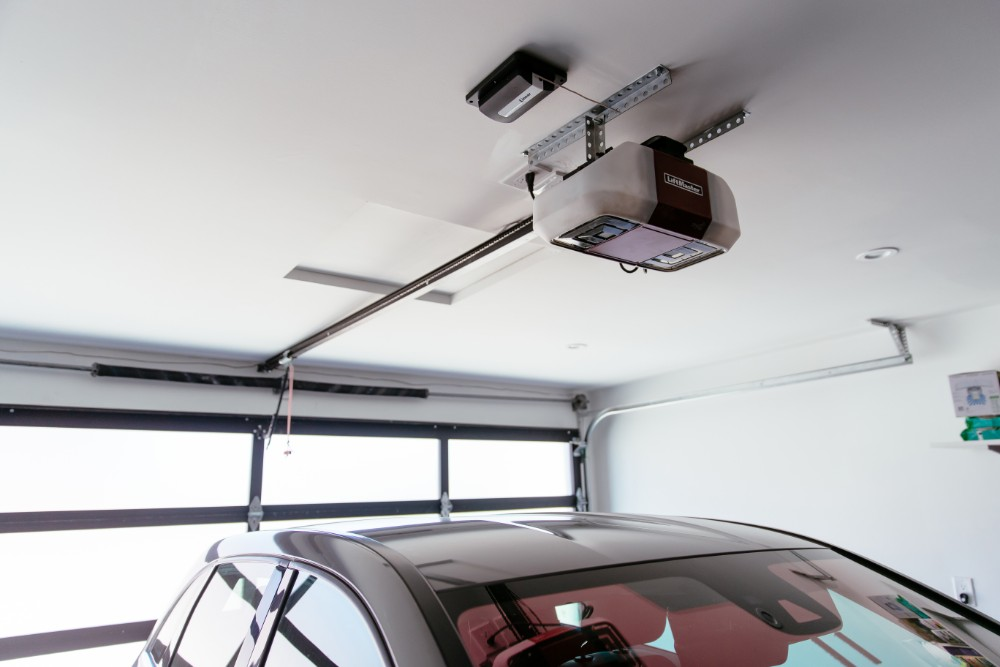
Image Source: vivint.com
For any complex garage door opener issue which you feel you cannot handle then you can use the services of a technician to help replace the garage door or the part. They can assist you in choosing a new one if you have an older model of garage door systems.
Here are six tips for garage door opener troubleshooting:
1. Checking Power Sources and Connections
The first step is to ensure you check and confirm the power and connections. Check that the garage opener is connected to electricity supply and ensure that the power cord is not damaged.
If the opener is wired, ensure that no circuit breaker for the opener has been tripped off. The other thing that calls for inspection is the integrity of the contact between the opener and the essential electrical outlet.
2. Testing the Garage Door Springs
The springs on a garage door are always on tension and they are especially prone to wearing out. In general, if the door frequently does not open or close without any hurdle, there may be the problem with springs. To check the springs, open the door to the midway and release it. The mechanical springs remain effective if the door remains in place. If the door is falling or rising too fast then you will need the new springs.
3. Inspecting Garage Door Tracks
The tracks on which the garage door is mounted to open and close can also get bent or out of track to make the door function incorrectly. If you want to examine the tracks you must look at the creases on the metal or whether it is bent. There should be minor problems found and these should be tapped back into place using a rubber mallet lightly.
4. Clearing Any Obstruction in the Garage Door Path
Apart from this, there are cases when the door cannot open or close normally due to an obstruction underneath the door within the garage space. Check that no debris or other items are lying in front of the door’s trajectory.
5. Adjusting Garage Door Opener Sensors
Some of the safety features that are integrated on a garage door opener include safety sensors and they may be misaligned or dusty thus make the door not to close. To test the sensors ensure that they are clean and are rightly positioned in place. If it is not, then just make it so by turning the leverage a bit as needed.
6. Replacing Worn-Out Garage Door Opener Parts
Finally, the worn out or damaged parts may have to be replaced if none of the above crucial step works. The typical parts which require replacement include; motor, belt or chain, gear and sprocket, circuit board.
Frequently Asked Questions (FAQs) on Garage Door Opener Problems
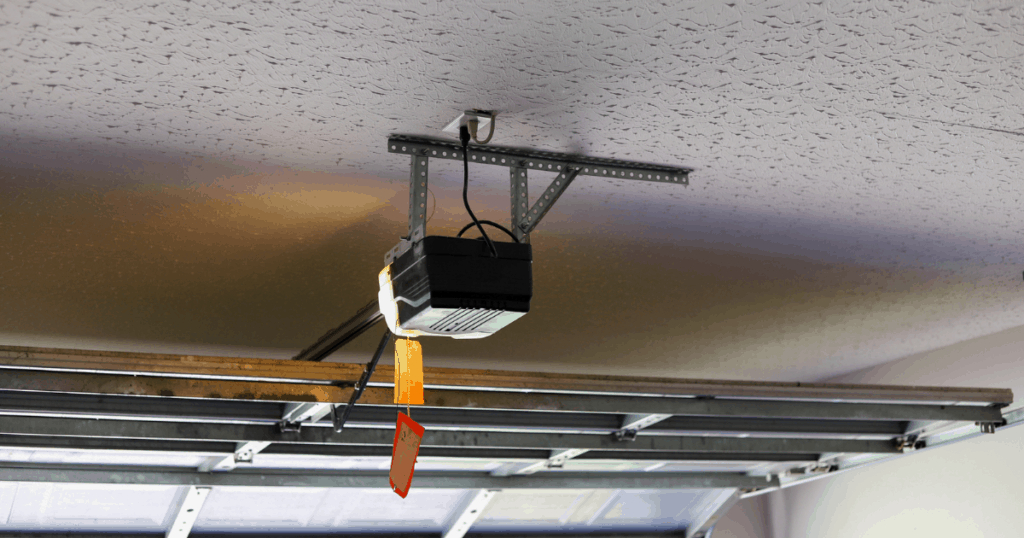
Image Source: overheaddoors.com
1. How do you diagnose a garage door opener problem?
Diagnosing a garage door opener problem requires the preliminary tests on power supply, then examining the state of the remote control, wall switch, next checking on the safety sensors as well as limit switch and finally inspecting the motor & drive gear of the device. Anytime you want to diagnose and possibly repair a faulty garage door opener, you should ensure that follows the recommended guidelines.
2. What causes the garage door opener to stop working?
Common causes of a garage door opener not functioning properly are power losses, dead batteries in the remote control, improper connection, defective electric parts, incorrectly placed safety sensors, damaged gears or chains, worn out brushes or capacitors, and faulty switches.
3. How do you test a garage door pressure sensor?
When evaluating a garage door pressure sensor, you should position an obstruction such as a piece of wood or an object of similar, in front of the closing door. In this case, the door ought to rotate in the opposite direction and opened again once touch the object in concern by the sensor. As a result, if it does not, it can cause a breakdown of the sensor, which may need to be repaired or replaced.
4. How do I know if the garage door opener capacitor is bad?
A bad capacitor in a garage door opener can make the motor to hum or buzz but it won’t start. In order to check whether the capacitor is good or bad, you can use the following tests on it; If these readings are much higher or lower than the values mentioned above and specified in the manufacturer’s instructions, the capacitor is most likely to be defective and require replacement.
5. How do I fix my automatic garage door opener?
When an automatic garage door opener is faulty, repairing it depend on the issue that it is experiencing. The most common fixes are charging the battery in the remote control or wall switch, calibrating the safety receptors, greasing the operating wheel and chains, replacing the motor brushes or capacitors and erasing the opener’s memory.
6. What causes the garage door not to open and close?
These factors include mechanical failure of safety sensors, bent or misaligned tracks, worn-out steel or stretched/stripped extension spring and cable, problem in the opener motor, drive gear, expensive limit switch, or sheer power cuts.
7. Why won’t the garage door open when I push the button?
Here are some factors with regard to your garage door that may cause it not to open when you activate your remote control or a wall switch: This can be due to dead batteries, damaged neural wiring or electricity, unsafe sensors that may be out of alignment or a flawed opener motor or drive equipment.
8. Why does my garage door stop when closing?
There are several reasons that make a garage door stop closing; misaligned tracks, damaged springs or garage door cables, a working safety sensor, a damaged or worn limit switch, or a bad opener garage door motor or drive gear. The problem has to be tackled right from the beginning to ensure the safety of the garage door opener.






